
Dreyfus is a 1930 German drama film directed by Richard Oswald and starring Fritz Kortner, Grete Mosheim, and Heinrich George. It portrays the Dreyfus affair and is based on a novel by Bruno Weil. The film's sets were designed by the art directors Franz Schroedter and Hermann Warm. It premiered at the Gloria-Palast in Berlin. In the United States the film was released under the alternative title The Dreyfus Case.
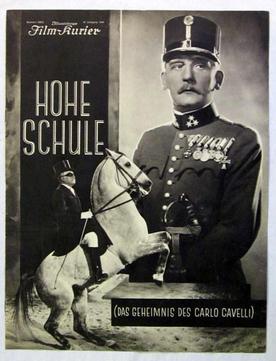
Hohe Schule, also known by its subtitle Das Geheimnis des Carlo Cavelli is a 1934 drama film directed by Erich Engel. The English-language version was released in the UK between 1935 and 1939, and in the US in 1939. An outstanding specimen of the genre of the Wiener Film, this story of love set in the Austrian officer classes was one of the most successful German-language film releases of 1935. The English-language version was released in the UK between 1935 and 1939, and in the US in 1939.
Episode is an Austrian film from 1935. It belongs to the popular Austrian light romantic comedy genre known as the Wiener Film, but also contains, for a film of this genre, unusually serious social comment. It was written and produced by Walter Reisch. The film has a particular importance in German-language film history as the only Austrian film with a Jewish producer that was permitted to be imported and shown in Nazi Germany after 1933 and the ban on Jews working in the film industry.

The Great Awakening is a 1941 American historical musical drama film starring Alan Curtis, Ilona Massey, and Billy Gilbert. Directed by Reinhold Schünzel, the film was produced by Gloria Pictures Corporation, and released by United Artists. Miklós Rózsa was responsible for the musical direction, though he later expunged the title from his filmography, because he considered it a travesty of the great composer's life story.

Joan of Arc is a 1935 German historical drama film directed by Gustav Ucicky and starring Angela Salloker, Gustaf Gründgens and Heinrich George. It depicts the life of Joan of Arc, and is the first female embodiment of the Nazi Führer figure in film. The press in Germany and abroad detected direct parallels between the presentation of France in 1429 and the situation in Germany in 1935.

Michiko Tanaka was a Japanese singer and actress.
Elsa Bassermann was a German screenwriter, stage and film actress. She was married to Albert Bassermann and often acted with him. As she was Jewish the couple had to leave Nazi Germany and go into exile in Switzerland and the United States. She later returned to Germany, where she died in 1961.

Napoleon at Saint Helena is a 1929 German silent historical film directed by Lupu Pick and starring Werner Krauss, Hanna Ralph, and Albert Bassermann.
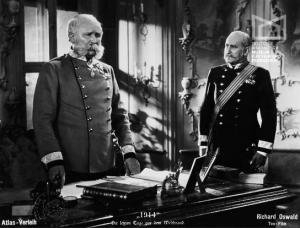
1914 is a 1931 German drama film directed by Richard Oswald and starring Albert Bassermann, Hermann Wlach and Wolfgang von Schwindt. The film focuses on the leadership of the Great Powers of Europe in the days leading up to the outbreak of the First World War, culminating in the assassination of Archduke Franz Ferdinand of Austria by Gavrilo Princip. It was shot at the Babelsberg Studios in Berlin and premiered in the city at the Tauentzien-Palast on 20 January 1931. At the request of the German Foreign Office an introduction by Eugen Fischer-Baling was filmed and presented at the start of the film. A special screening was held at the Reichstag on 3 March 1931.
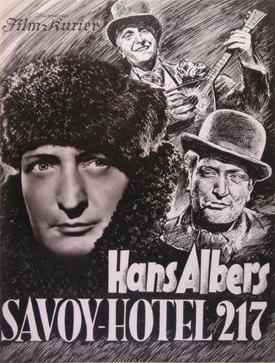
Savoy Hotel 217 is a 1936 German drama film directed by Gustav Ucicky and starring Hans Albers, Brigitte Horney and Alexander Engel. It was shot at the Babelsberg Studios in Potsdam. The film's sets were designed by the art directors Robert Herlth and Walter Röhrig. The costumes were by Herbert Ploberger. It premiered at Berlin's UFA-Palast am Zoo.

The World's in Love is a 1935 Austrian comedy film directed by Viktor Tourjansky and starring Mártha Eggerth, Leo Slezak and Ida Wüst. It is based on the operetta Clo-Clo. The film's sets were designed by the art director Julius von Borsody. It was remade in Britain the following year as Dreams Come True.
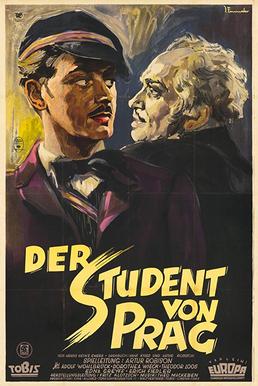
The Student of Prague is a 1935 German horror film directed by Arthur Robison and starring Anton Walbrook, Theodor Loos and Dorothea Wieck. It is based on the eponymous novel by Hanns Heinz Ewers which had previously been adapted into celebrated silent films on two occasions. It was shot at the Johannisthal and EFA Studios in Berlin. The film's sets were designed by the art director Karl Haacker.

A Woman Branded or Dangers of Love is a 1931 German drama film directed by Eugen Thiele and starring Toni van Eyck, Elsa Bassermann and Hans Stüwe. It was shot at the Terra Studios in Berlin. The film's sets were designed by the art director Heinrich Richter.
Masks is a 1920 German silent film directed by William Wauer and starring Albert Bassermann and Elsa Bassermann. It was part of a group of expressionist films released during the period.
The Voice is a 1920 German silent drama film directed by Adolf Gärtner and starring Albert Bassermann, Elsa Bassermann and Loo Hardy.
The Last Witness is a 1921 German silent film directed by Adolf Gärtner and starring Albert Bassermann, Elsa Bassermann and Olga Engl. It was shot in 1919, but not released until April 1921.
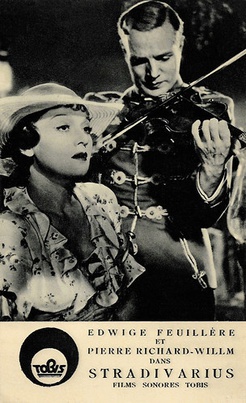
Stradivarius is a 1935 drama film directed by Albert Valentin and Géza von Bolváry and starring Pierre Richard-Willm, Edwige Feuillère, and Robert Arnoux. It was made by Tobis Film as the French-language version of the film Stradivari.
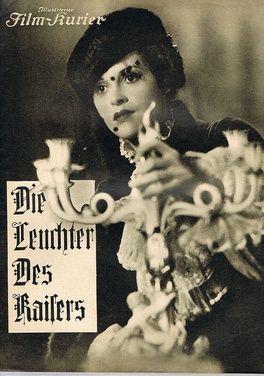
The Emperor's Candlesticks is a 1936 Austrian historical adventure film directed by Karl Hartl and starring Sybille Schmitz, Karl Ludwig Diehl and Friedl Czepa. It is an adaptation of Baroness Orczy's 1899 novel The Emperor's Candlesticks. A Hollywood film version of the story The Emperor's Candlesticks was released the following year.

Ripening Youth is a 1933 German drama film directed by Carl Froelich and starring Heinrich George, Peter Voß and Hertha Thiele.

The Zaarden Brothers is a 1918 German silent drama film directed by William Wauer and starring Albert Bassermann, Elsa Bassermann and Marija Leiko.















